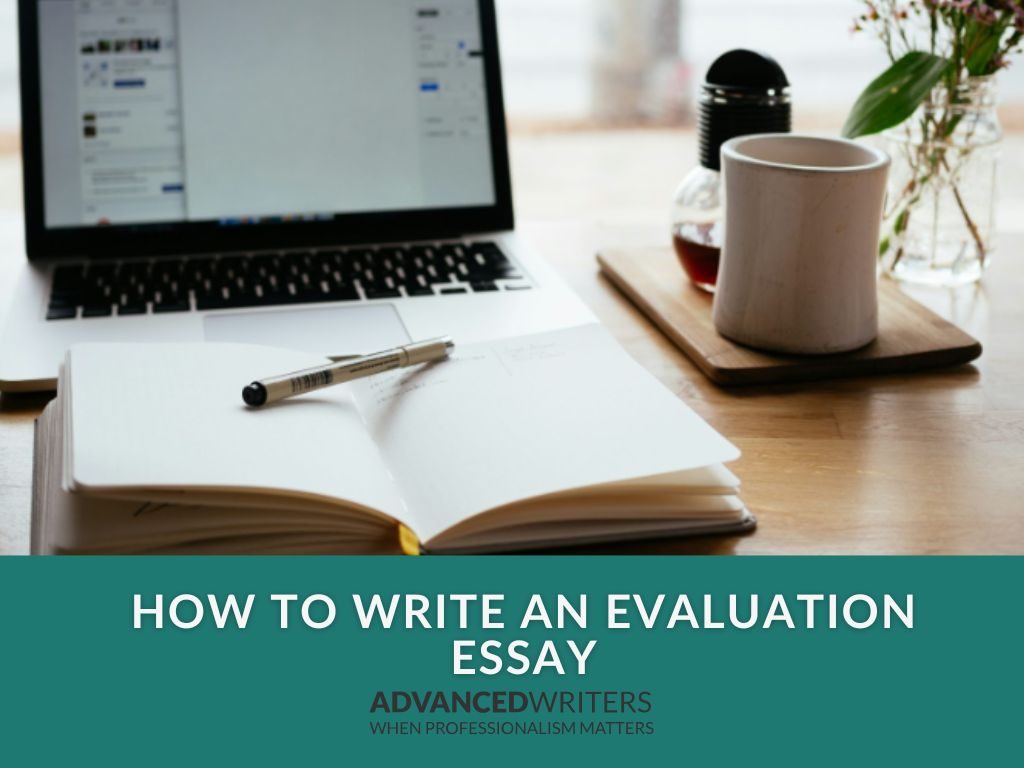How to Write an Evaluation Essay: A Comprehensive Guide
So, you’ve been assigned to write an evaluation essay, but you’re not exactly sure where to start writing. Don’t worry, you’re not alone! An evaluative essay can seem tricky at first, but once you get the hang of it, it’s pretty straightforward. When writing an evaluation essay, you need to provide a judgment on something based on a set of evaluation criteria. It could be a book, a movie, a product, a restaurant, or even a process.
If you’ve ever written a review online, you’ve already done a bit of this. But with an evaluation essay, you need to take it a step further—dig deeper, get more organized, offer constructive criticism, and support your opinions with solid evidence.
In this guide, we’ll break down how to write an evaluation essay step by step. Reading it will give you everything you need to write a thorough analysis, a strong introduction, a detailed main body, and a good conclusion that helps you make your point.
What Is an Evaluation Essay
Let’s start by defining what an evaluation essay is. Simply put, it’s an essay where you assess something like a product, service, or creative work based on specific standards or criteria. You’re not just summarizing a particular subject or what happened; you’re evaluating it, judging whether it’s “good”, “bad”, or somewhere in between.
For example:
- Movie review: You could evaluate a movie based on its acting, plot, pacing, and cinematography.
- Restaurant review: You might look at food quality, service, atmosphere, and price.
- Product review: The criteria could be performance, design, durability, and value for money.
What sets the evaluative essay apart is that you’re not just sharing your opinion but supporting it with sufficient evidence such as facts, examples, and logical reasoning.
How to Write an Evaluation Essay
Writing an evaluation paper involves several steps, and trust us, once you break it down, it’s not as intimidating as it sounds. Let’s walk through it.
Pick a Subject
Before anything else, you need to pick what you’re going to evaluate. Make sure it’s something you can analyze deeply. It could be a book, a product you’ve tried, or even an event you’ve attended. Choose something you can form an opinion about, providing a detailed description and backing it up with examples. Here are a few ideas:
- Books or movies: Something you’ve recently read or watched.
- Products or gadgets: A new tech device or household item.
- Restaurants or services: A place you’ve dined or a service you’ve used recently.
If you’re stuck, think about things you’ve already experienced recently. Pick an essay topic that you can discuss intelligently, provide relevant examples for, and offer a solid assessment of. If necessary, look through a few evaluation essay examples to get a better understanding of the writing style you need to follow.
Set Criteria for the Entire Essay
Here’s the important part: figuring out how you’ll evaluate a particular subject. What are the main points you’ll focus on? These are your defined criteria—the standards by which you’ll judge the subject. You can’t just say, “It’s great!”. You need to show why a particular item is great or not. Stating negative aspects is important as well because it demonstrates critical thinking.
For example, if you’re evaluating a restaurant, your criteria might look like:
- Food quality: Is the food delicious and well-prepared?
- Service: How friendly and attentive is the staff?
- Ambiance: Is the place cozy, comfortable, or stylish?
- Value for money: Is the food worth what you’re paying?
For a product review, you might evaluate:
- Performance: How well does it work?
- Design: Is it user-friendly and aesthetically pleasing?
- Durability: Will it last or fall apart after a few uses?
- Price: Does it offer good value for what you’re paying?
Once you set your criteria and come up with a compelling argument, you’re ready to go.
Gather Evidence
To support your evaluation, you need evidence. Think about how you can back up your main points with examples or facts. This could include:
- Personal experience. If you’ve used a product or visited a place, explain what you experienced.
- Expert reviews. Consider opinions from people who know more about the subject, like professional critics or trusted reviewers.
- Statistics or research. For more formal essays, you could use data or case studies to show why your evaluation is valid.
- Comparisons. You can compare your subject with other similar items, whether it’s a product or a piece of media.
The more specific your evidence, the stronger your overall evaluation will be.
Develop a Thesis Statement
Your thesis statement is like your anchor in the introduction paragraph—it tells your reader exactly what you’re going to argue in the essay. For an evaluation essay, your topic sentence should provide your overall judgment about the subject based on the criteria you’ve set. It’s the point you’ll be trying to make throughout the essay.
For example:
- Positive judgment: “The latest iPhone model is a game-changer in terms of performance, design, and user experience.”
- Negative judgment: “While the latest iPhone looks sleek, it falls short in battery life, making it an impractical choice for daily use.”
- Mixed judgment: “The latest iPhone offers impressive speed and design but struggles with short battery life and high pricing.”
Keep your thesis statement clear and concise, and let your topic sentence guide the rest of your essay.
Organize Your Essay
Now that you have your topic, background information, criteria, evidence, and thesis, it’s time to organize your essay. Here’s a basic structure to follow:
Introduction
- Start by introducing the key element you’re evaluating.
- Briefly provide context for your reader. What is it, and why is it important to evaluate?
- End with your thesis statement, where you lay out your judgment and all the other criteria you’ll use.
Body Paragraphs
Each body paragraph should focus on a different criterion. Here’s how it might look:
- Criterion 1: State the first standard you’re evaluating (e.g., the quality of food if you’re reviewing a restaurant).
- Then, provide your judgment and explain why you feel that way (e.g., “The steak was cooked perfectly and with the right amount of seasoning”).
- Use evidence or examples to back up your judgment (e.g., “According to online reviews, many diners have praised this particular dish”).
- Criterion 2: Discuss the second standard (e.g., service at the restaurant).
- Follow the same pattern for your judgment, and then for supporting evidence.
Continue with as many criteria as needed, depending on how many aspects you’re evaluating.
Conclusion
- Wrap it up by summarizing your overall judgment.
- Restate your thesis in light of the points you’ve made.
- You can also suggest improvements or alternatives in the conclusion paragraph, especially if your judgment is mixed or negative.
The aspects mentioned above are among the key grading considerations your teacher will take into account. If you aren’t sure you have the important skills needed to handle such a task or struggle with writing other essays, our professional essay writing service is available 24/7 to offer a helping hand.
Photo by Dan Counsell from Unsplash.com
Tips for Writing an Evaluation Essay
Let’s talk about a few tips that can help make the final draft even better.
Be Objective and Fair
Even if you really dislike the subject, try to stay fair and balanced. A good evaluation paper takes both pros and cons into account. Acknowledge any strengths, even if you find more weaknesses overall. This keeps your analysis credible and highlights various factors.
Be Specific
Vague statements like “It’s good” or “I didn’t like it” don’t help much. Give specific examples to explain why you think something is good or bad. The more detail you provide, the stronger your evaluation will be.
Don’t Overload on Details
That said, don’t get too focused on irrelevant details. Stick to what matters to your criteria. You want to keep the focus on the key points that support your evaluation.
Keep a Balanced Tone
Even if you’re critiquing something, try to be constructive. Instead of just saying, “The movie was terrible,” you can say, “The movie struggled with pacing and character development, which made it difficult to stay engaged.”
Revise, Revise, Revise
After you’ve written your evaluative essay, revise it thoroughly. Read it and check if your arguments are clear, your examples are strong, and your structure makes sense. Fix any grammatical or spelling errors along the way.
Common Mistakes to Avoid
Even experienced writers make a few slip-ups. Here are some common mistakes to watch out for:
Failing to Set Clear Criteria
If you don’t explain how you’re judging the subject, your essay will lack direction. Moreover, you will lose the reader’s interest. Make sure your criteria are clear right from the start.
Being Too General
Avoid vague statements like “This movie was boring” without explaining why. Always provide precise examples or supporting evidence.
Ignoring Counterarguments
If someone disagrees with your evaluation, it’s good to address those points briefly. Acknowledge other perspectives, even if you don’t agree.
Lacking Organization
An evaluation paper that jumps around without a clear structure can confuse your reader. Make sure your paragraphs focus on one thing at a time and flow logically from one point to the next.
Not Considering Your Audience
Who are you writing for? Tailor your tone and style to fit the audience. Don’t use too much technical jargon unless it’s appropriate, and make sure your language is easy to understand.
Photo by Brad Neathery from Unsplash.com
The Difference Between an Evaluation Essay and a Review
When it comes to writing about something you want to evaluate, you might run into two types of writing: evaluation essays and reviews. At first glance, they might seem pretty similar because both involve giving your opinion on something, like a movie, product, or restaurant. However, there are some important differences between them in terms of what they aim to do, how they’re structured, and how deep the analysis goes. Let’s break it down.
Purpose and Focus
The biggest difference between an evaluation essay and a review is the purpose behind them. An evaluation essay is more academic and in-depth. Its main goal is to provide a detailed judgment based on specific criteria. You’re not just saying, “This is good or bad”; you’re explaining why it’s good or bad and backing that up with facts and examples. You’re looking at all the important parts and evaluating them one by one. For example, if you were reviewing a new laptop, you’d probably talk about things like design, performance, battery life, and value for money.
A review, on the other hand, is usually shorter, more personal, and opinion-based. It’s about giving your immediate reaction to something and offering your overall opinion—whether you liked it or not. Reviews are often aimed at a general audience and don’t get into as much detail. For instance, if you wrote a review of the same laptop, you might simply say, “It’s fast and sleek, but the battery life is disappointing.” It’s a bit more to the point and doesn’t dive as deep into each individual aspect of the laptop.
Structure and Length
Another difference is the structure. An evaluation essay usually follows a clear, formal format. You start with an introduction, move into body paragraphs that break down your criteria, and wrap it up with a conclusion in the last paragraph that sums up your final judgment.
Each body paragraph should focus on one aspect of the subject. For example, in an essay about the laptop, you might have a paragraph on the design, another on performance, and another on battery life. Each section would be supported with examples or data.
Reviews, on the other hand, are much shorter and simpler. You don’t need a super structured essay format. You’ll usually introduce the subject, summarize your experience or thoughts quickly, and then wrap it up with a recommendation. It’s more of a quick read and doesn’t require the same level of detail or organization. Reviews are often more casual and conversational because you don’t have to dig into every detail; just give your audience enough information to make their own judgment.
Depth of Analysis
When it comes to the depth of your critical analysis, evaluation essays tend to go way deeper. Because you’re trying to make a reasoned, well-supported judgment, you’ll need to really dig into the details. You’ll likely break the subject down into several key components and analyze each one thoroughly.
For example, in an evaluation essay on a movie, you might discuss the plot, acting, cinematography, pacing, and how those elements work together. You’d give examples and supporting evidence and might even compare it to other films in the same genre.
In a review, however, the analysis is usually much more surface-level. Reviews are based mostly on personal opinions, so while you might mention the acting or cinematography, you’re not going to spend a lot of time explaining or justifying your thoughts in depth. It’s more about the overall impression: Did the movie entertain you? Did you find it worth your time? A review requires less evidence or research than an evaluation essay. You just share your thoughts based on your experience.
Who’s the Audience?
Another thing to think about is the audience. Evaluation essays are often written for an academic or more specialized audience, so you’ll need to write in a way that’s more formal and structured. Your audience will likely expect an objective tone and a more analytical approach with clear, well-supported points.
Reviews, however, are often meant for a wider audience, so you can get away with being more personal and conversational. Reviews tend to be shorter and more about giving people a quick snapshot of your thoughts—whether it’s recommending a book, movie, or product or advising against it. Because of this, reviews are much less formal and don’t require you to be as organized or objective as you would be in an evaluation essay.
If you are stuck with writing such an essay, need evaluation essay examples that grab the reader’s attention, or are struggling with crafting a well-written paper, our essay writers for hire offers qualified assistance 24/7. Feel free to buy an essay at AdvancedWriters.com , and we’ll find a suitable expert to help you tackle this challenge.
Frequently Asked Questions
What is an evaluation essay?
An evaluation essay is a type of academic writing that presents a detailed analysis of a subject, whether it’s a book, product, movie, event, or service. An effective evaluation essay aims to assess the subject based on specific criteria and provide a balanced judgment supported by evidence. The evaluation essay looks at both strengths and weaknesses and offers a final judgment about whether the subject is worth considering or engaging with.
What should my evaluation criteria be?
Your evaluation criteria will depend on the subject of your essay. For instance:
For a product, look at design, functionality, price, and durability.
For a movie, you could evaluate the acting, direction, pacing, and cinematography.
For a restaurant, you might consider the quality of food, ambiance, service, and value for money.
The key is to identify the aspects that will allow you to make a fair judgment and explain the subject thoroughly.
Can I write an evaluation essay from a personal perspective?
Yes, absolutely! Personal perspective is important in an evaluation essay. It helps to give your evaluation a unique point of view and adds authenticity to your argument. However, it’s crucial to back up your personal experience with objective evidence when possible. For example, if you’re evaluating a restaurant based on your own experience, make sure to include details about the food, service, and atmosphere to support your judgment.
How do I avoid bias in my evaluation essay?
To avoid bias, it’s important to stay objective and consider all sides of the subject. While your personal opinion matters, make sure you’re weighing both the pros and cons fairly. Acknowledge any counterarguments or differing perspectives to make your evaluation feel balanced and well-rounded. For example, if you love a certain brand of sneakers, make sure you also mention any flaws or drawbacks they might have and explain them thoughtfully.
How do I gather evidence for my evaluation essay?
Evidence can come from a variety of credible sources, depending on your essay topic. You can use:
Personal experience. If you’ve used a product, attended an event, or watched a movie, use your own experience to provide evidence.
Expert opinions. Research expert reviews, studies, or statistics to back up your evaluation.
Comparisons. Compare your subject to similar items, services, or experiences to demonstrate why it does or doesn’t stand out.
How do I make my evaluation essay convincing?
A convincing evaluation essay is one that presents a clear judgment backed by evidence. Make sure you explain why certain criteria matter and how the subject measures up. During the writing process, use relevant examples to support your points, and avoid vague statements. Additionally, acknowledge any weaknesses or drawbacks to demonstrate that your evaluation is well-thought-out and objective.
Can my evaluation essay be positive or negative?
Your evaluation essay can be both positive and negative, depending on your assessment of the subject. It’s possible for an evaluation to be mostly positive but still acknowledge a few minor issues, or vice versa. What’s important is that your evaluation is fair and based on the criteria you’ve set and not just personal preference.



